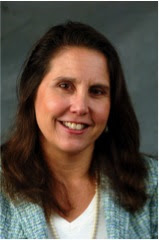
Sheri Colberg-Ochs, Ph.D.
SANTA BARBARA, Calif. (June 3, 2014)- Sansum Diabetes Research Institute is pleased to welcome Sheri Colberg-Ochs, Ph.D., to the Institute for four weeks this summer. Colberg-Ochs, a highly-respected professor of exercise science, joins the team to help start a major new partnership with UC Santa Barbara in creating innovative technologies that will allow people with diabetes to safely and effectively engage in exercise and sports.
“For everyone living with diabetes, regular exercise is a cornerstone of treatment and prevention. We are delighted that Sheri will be joining us to help progress our major new initiative in partnership with UC Santa Barbara, to create innovative technologies that will allow people with diabetes to enjoy exercise and sports,” said Dr. David Kerr, Director of Research and Innovation at the Institute. “Sheri is a world-renown authority on exercise and diabetes and will be a huge asset to our team.”
Colberg-Ochs is a professor of exercise science at Old Dominion University in Virginia, an adjunct professor of internal medicine at Eastern Virginia Medical School, and an extensively published clinical researcher on exercise, diabetes and aging. She holds a B.A. in International Relations from Stanford University, an M.A. in Exercise Physiology, from University of California Davis, and a Ph.D. in Exercise Physiology from University of California, Berkeley. She also wrote the American Diabetes Association book on diabetes and exercise.
Physical activity is beneficial for anyone with type 1 or type 2 diabetes. The Institute’s partnership with UC Santa Barbara is to help create innovative technologies allowing more people with diabetes to benefit from exercise and to exercise more safely. To begin Colberg-Ochs will undertake a study measuring the ability of existing technologies to detect the onset of exercise in subjects with type 1 diabetes comparing a 10 second versus 1 minute high-intensity sprint and the effect on glucose levels during the trial and overnight. This will help to further develop the artificial pancreas program.
